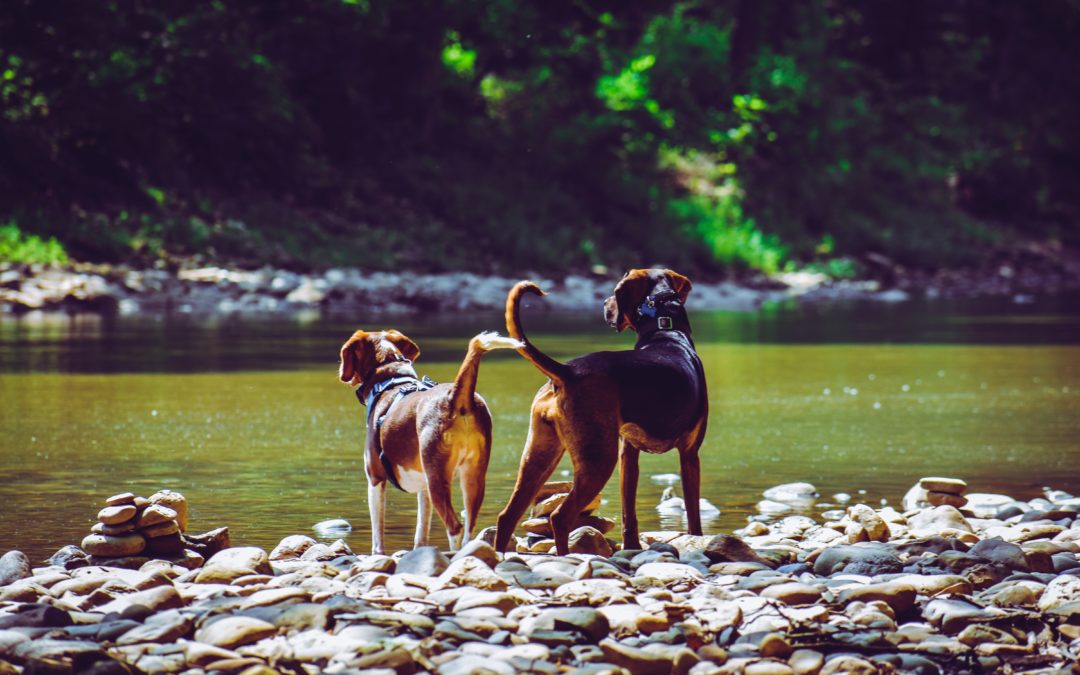Have you heard of Leptospirosis? Leptospirosis is a disease caused by bacteria and can seriously affect your pet’s health. At South Hyland Pet Hospital, we are here to help you understand your pet’s risk and provide the necessary care to keep your pet safe.
In this article, we’ll discuss how the disease is spread, what to look for, and how you can help protect your pet.
What is Leptospirosis?
Leptospirosis is a serious medical condition caused by a bacterial infection. Several strains of Leptospira bacteria are known to cause illness and are found in both soil and water.
Cats and dogs are susceptible to infection. However, dogs are at the greatest risk of exposure and typically experience more severe symptoms. Most dogs become infected after swimming or drinking from water sources contaminated with the bacteria. Animals who are infected will shed bacteria in their urine. Because of this, close contact with infected animals can be an additional source of disease.
It’s essential to note that Leptospirosis is a zoonotic disease and can be transmitted from animals to humans. If you suspect your pet is sick, it’s critical to take precautions to reduce your risk of exposure. Leptospirosis can cause flu-like symptoms in people, and it’s important to notify your physician if your pet is diagnosed.
Signs of Disease
The signs of Leptospirosis in pets can vary and are often similar to other medical conditions. Some symptoms to look for include:
- Fever
- Lethargy
- Vomiting
- Diarrhea
- Inappetence
- Generalized pain or discomfort
- Depression
Leptospirosis can also cause significant damage to your pet’s liver and kidneys. As a result, you may notice changes in how often your pet is urinating. Sick pets may also show signs of jaundice, a yellowing of the mucous membranes related to poor liver function.
If you suspect your pet is sick, it’s essential to seek veterinary care as soon as possible. Give us a call to have your pet evaluated. If they are experiencing severe symptoms, you may need to take them to the nearest emergency center.
Keeping Your Pet Safe
While Leptospirosis can have severe consequences for your pet’s health, there are a few things you can do to keep your pet safe and reduce their risk of disease. The first step in preventing disease is getting your pet vaccinated. Leptospirosis vaccines are recommended for dogs at increased risk of disease and can prevent severe illness. Leptospirosis vaccines must be given annually and can be administered during your pet’s annual wellness appointment.
Another way to protect your pet is to reduce their risk of exposure. This can be done by preventing dogs from drinking from rivers, lakes, and streams. You may also want to consider limiting your dog’s ability to roam in rural areas where they are more likely to encounter infected wildlife or water sources.
Final Thoughts
Leptospirosis is a serious medical condition that can significantly impact your pet’s long-term health. We hope this information has given you a better understanding of this disease and how to protect your pet. If you have additional questions about Leptospirosis or want to get your pet vaccinated, please give us a call at 952-884-1868. We look forward to hearing from you and helping your pets remain healthy and safe this summer.
Image credit: Pexels



